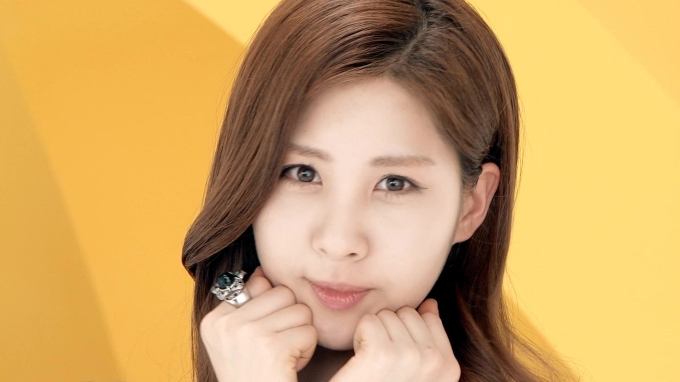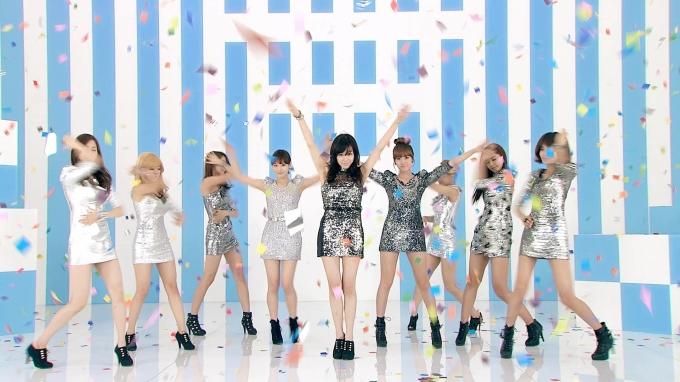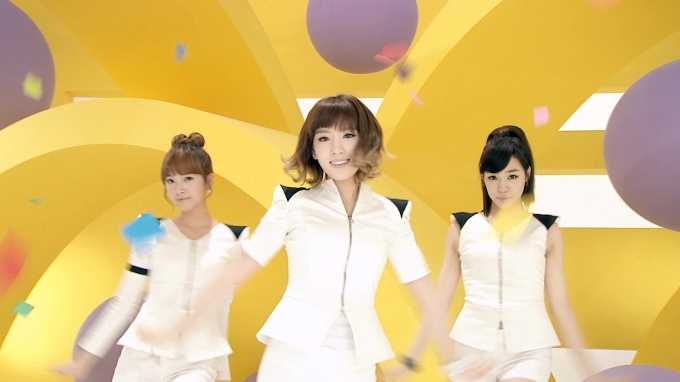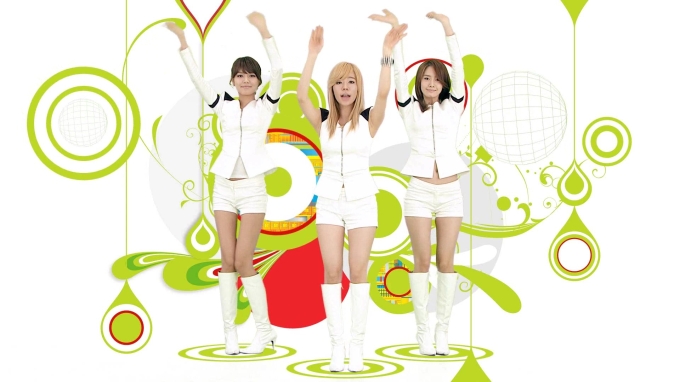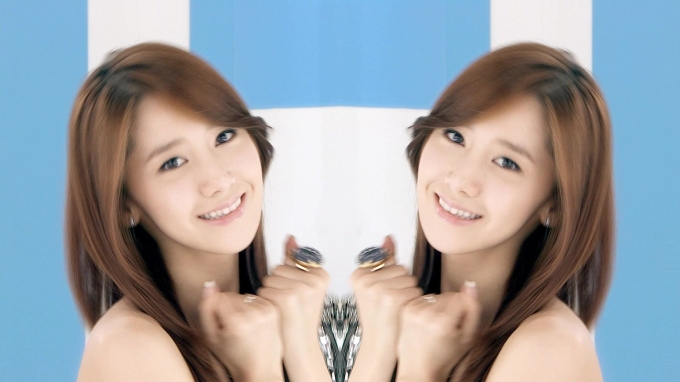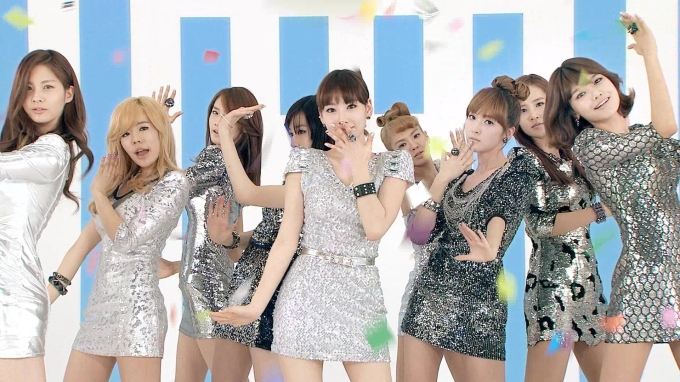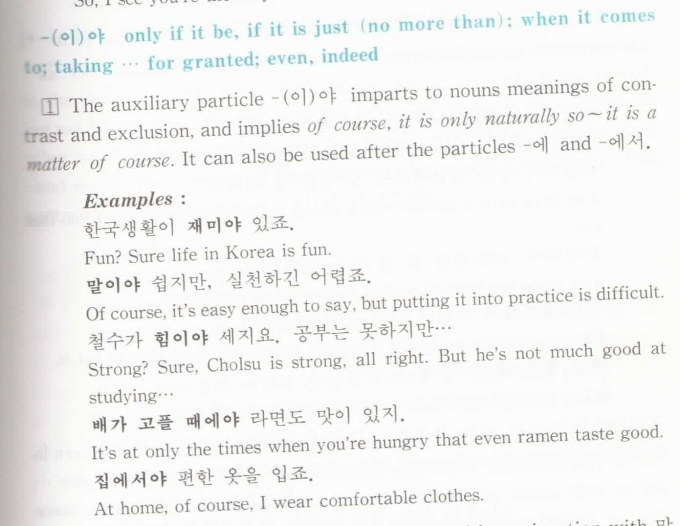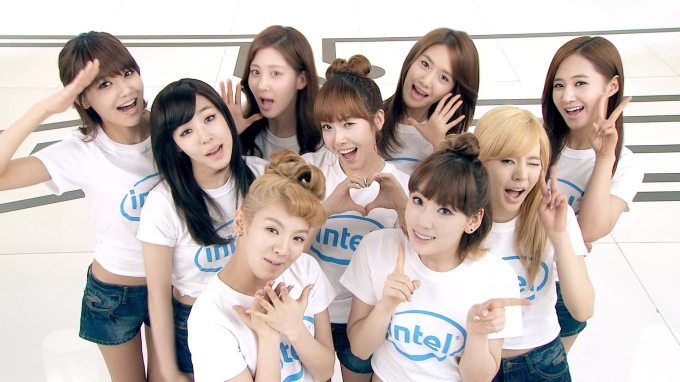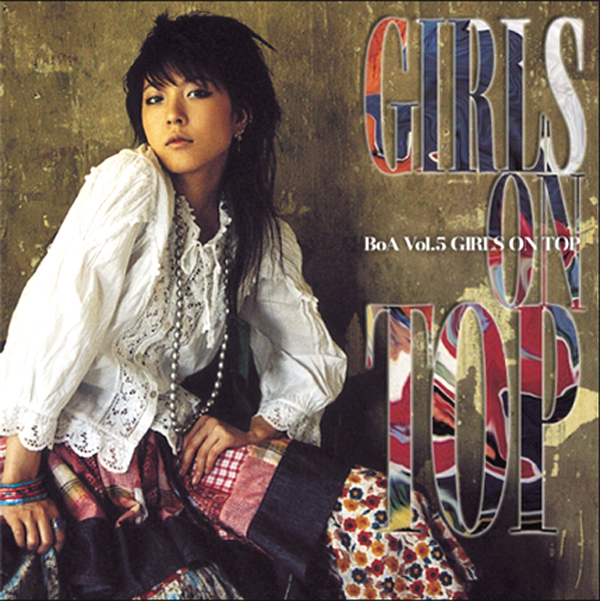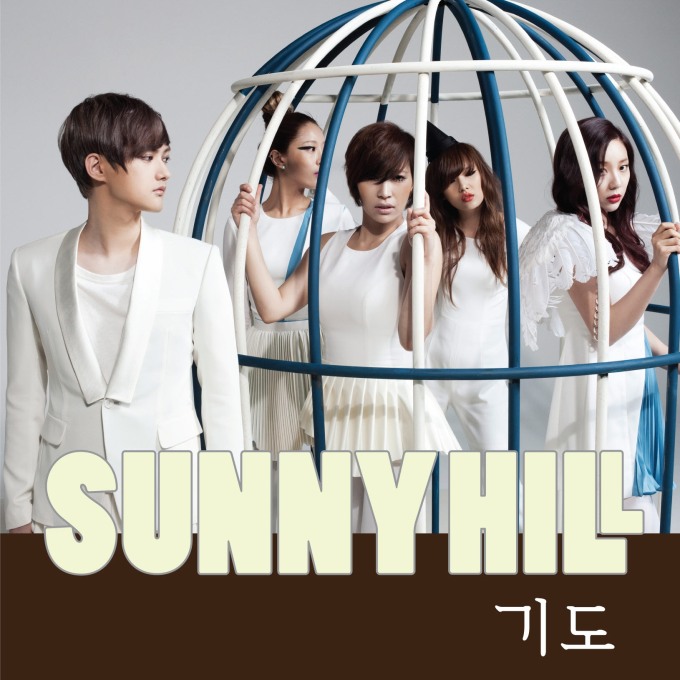![Girls' Generation KARA rivalry]() (Source)
(Source)
Well, this is embarrassing.
Now as you’re probably aware, I simply love this song, and must have listened to it well over a hundred times. And the music video is amazing too.
But now that I’ve actually studied the lyrics? Hell, but for the word “2010″ at the beginning, I actually had no idea that so much of the song was in English.
On the positive side though, that’s given me a renewed appreciation for the difficulties many Koreans have in realizing that a (frustrated) foreigner is actually speaking Korean to them, albeit in a strange accent. And I don’t mind how nonsensical all the English in the song is either, as that’s quite normal for K-pop.
But unfortunately the Korean too seems literally thrown together in many places, which made it difficult for even my Korean wife to understand. And as you’ll soon see, the small amount of it below belies how much time and effort went into translating it.
And knowing all that about the song now? To be frank, it’s made it lose just a bit of its magic for me.
Lest the same happen to you, read on at your peril!
The first part obviously doesn’t need an explanation, although I’d be interested in learning what “la couture” means exactly:
Sing it with me now
2010, We bringing new love to the floor
Rocking what’s real la couture
We opening new doors new show new world new control
Can you keep up oh!
Hallo! Hallo! Hallo! Hallo! Hallo!
Hallo! Hallo! Hallo! Hallo! Hallo!
Hallo! Hallo! Hallo! Hallo! Hallo! Catch!
Hallo! Hallo! Catch! Catch! Hallo! Hallo!
![Kara Lupin Screenshot 2]() (Source)
(Source)
겁먹지마 니 심장소리가 들켜 (쉿!)
뒤에 서서 침착하게 지켜봐봐
탐난다고 서두르단 결국 Game set
유연하게 행동해봐 As usual it’s mine
Hide your fear, your heartbeat will be detected (shh!)
Stand behind [me], calmly try to keep watch
Even if it is desirable, if you hurry in the end Game set
Try to be flexible As usual it’s mine
![Kara Lupin Screenshot 1]() (Source)
(Source)
Most of that was pretty basic, provided you know that adding “보다” to the end of a verb, and conjugated in banmal (반말; informal speech) as “봐”, simply means try to do the verb. At the end of line 2, it’s added to “지켜보다” (to keep watch), hence the “지켜봐봐”.
But I don’t understand line 3 at all: “탐난다” means “be desirable” (not “burn” as given everywhere else: that’s “타다”), which is simple enough, but then it’s given as indirect speech, as indicated by the “~ㄴ다고” ending. But who said what is desirable? And what’s the connection to “서두르다” (hurry) after that for that matter, and while we’re at it what’s the “ㄴ” doing at the end of that too?
To make sense of it then, I suggested to my wife that possibly something like “탐나더라도” was intended, the “더라더” being a grammar pattern meaning “no matter how much, even though, I don’t care if”, and so on, and she concurred.
Finally, line 4 is literally “flexibly act/behave-try-to”.
![KARA Wallpaper]() (Source)
(Source)
Next, there’s the main chorus. As you can see though, there’s just one Korean line in it, and its simply “Go/climb high, try to grab/take all the world”:
(Eo eo eo) It’s mine
(Eo eo eo) This is mine
(Eo eo eo) This is mine
(Eo eo eo)
높이 올라 가 (Ye Ye Ye) 세상을 다 가져봐 (Ye Ye Ye)
Never back it up Back it it up (it it up)
Never turn it up Turn it it up (it it up)
![Kara Lupin Screenshot 3]() (Source)
(Source)
Hallo! Hallo! Hallo! Hallo! Hallo! Catch!
Hallo! Hallo! Catch! Catch! Hallo! Hallo!
한눈팔면 기회조차 뺏겨버려 (쉿!)
누구보다 한발 먼저 다가가 봐
남들처럼 티내다간 결국 Game set
유연하게 행동해봐 As usual it’s mine
If you so much as glance away, you’ll throw away your chance (shh!)
You should take the first step and try to approach
If you have the air of everyone else in the end Game set
Try to be flexible As usual it’s mine
![Kara Lupin Screenshot 4]() (Source)
(Source)
In Line 1 (of the Korean), “한눈” is literally “one eye”, and “팔다” sell, but hopefully it’s not too much of a jump to see that “selling one eye” means “look (or glance) away”, especially as the listener was already told to keep watch in the last verse.
Then, next to “기회” (chance, opportunity) there is the grammar pattern “조차”, which basically means “even, to boot, in addition”, as in “목이 아파서 밥은커녕 물한 잔조차 마실 수 없다” for example, or “My throat is so sore that I can’t even drink a glass of water, let alone eat rice”.
But with the next, “뱃기다” (be dispossessed of) plus the grammar pattern “버리다” added to it, which adds a sense of completely ruining or throwing away something, then in English the “even” seemed a bit awkward. So I came up with “If you so much as glance away, you’ll throw away your chance” instead.
Then line 2 is literally “who than- one step – first – approach try to”, so I think “You should take the first step and try to approach” gets the gist of that. And the “who” (or rather “they”) referred to is the “남들” in line 3, which I originally thought was an abbreviation for men (“남자” plus the plural marker “들”), but it turns out to mean “other people” instead. But note though, that that’s not in the sense that the male is used the default for both genders like in Spanish(?), as they’re different words: the “남” in “남들” has no hanja (Chinese character) root, whereas that for “남자” does, and indeed you’ll often see it – 男 – on doors to toilets and men’s changing rooms and so on (and while we’re on the topic, here’s the one for women {여} too: 女).
Finally, in line 3 “티내다” wasn’t in my electronic dictionary, but “티” can mean “an air”, and pulling a thick print dictionary from my bookcase with more examples of that usage confirmed it.
![Kara Lupin Screenshot 5]() (Source)
(Source)
Next, the chorus is repeated, then you have:
이제 차근차근 걸어나가봐
세상 하나하나 전부 가득 담아봐
특별하길 원하니 네 것이길 바라니
시작해 Uh! Yeah, yeah!!
Now try to step out slowly and carefully
Try to fill in each and every part of the whole world
Do you want to be special? Do you hope it will be yours?
Start Uh! Yeah, yeah!!
![Kara Lupin Screenshot 6]() (Source)
(Source)
First up, in line 1, “차근차근” can mean “scrupulously”, “methodically”, “systematically”, and so on, but the final, more literal meaning of “step by step” seems most appropriate here. But then “Step out step by step” sounds awkward in English though, so I changed it to “slowly and carefully” instead. That does seem to contradict the carpe diem spirit of the song a little unfortunately, but I think that’s the fault of the original Korean!
Then you have “걸어나가다”, which was annoying for me as a beginner (Yet another word for “walk”?? And Koreans complain about learning English!), but is quite easy to understand really. You see, “걷다”, which is irregular and so conjugates as “걸어~”, is your basic “walk”. But then you can have things like “가다” and “오다” added to them, giving “걸어오다” and “걸어가다”, and which simply mean “walk” plus “come” and “go” respectively, or “walk towards [the speaker]” and “walk away from [the speaker]” in English. And with “걸어나가다” in the song, “나가다” simply means “go/step out”, giving “walk out”. Granted, it can also mean “walk towards, approach” according to the dictionary, (and don’t forget that “다가가다” from the last verse means “approach” too!), but “walk out” seems much more appropriate given the context of the previous verses.
Line 2 was very annoying though. Literally, it is “world – one by one – all parts/whole – full – fill/put in try to”, which can probably be translated many different ways (but not one by one as in separate worlds though), and “Try to fill in each and every part of the whole world” was the best I could do.
But that was a doddle compared to line 3. First up, “특별하다” means “to be special”, but then adding “기” at the end changes it to a noun, and then the “ㄹ” makes it the object. So, “specialness”, with the “원하다” being “want” plus the “니” at the end being an informal question form, and usually implying that the speaker places themself slightly higher than the listener – usually determined by age, as explained by Seamus Walsh in his comments to a translation of another song (a belated thanks for those by the way!). Which gives “Do you want specialness”, or “Do you want to be special?”.
Then you have “것이길 바라니”. “바라다” means “desire”, “hope for”, and “look forward to” (you’ll often see the formal form “바랍니다” at the end of signs on the subway and so on), and it includes the “니” form at the end as just explained. But “것이길”? I guess it’s “것” (thing) plus “이다” (to be) plus “기” to make it a noun, then “ㄹ” to make all that an object. So literally “your thing – the act of beingness – hope for”!
And that’s it, but for the 2nd half of the chorus again:
높이 올라 가 (Ye Ye Ye) 세상을 다 가져 봐 (Uh yeah)
Never back it up Back it it up (it it up)
Never turn it up Turn it it up (uh yeah, yeah!!)
As a reward for slogging your way through all that, let me present you with the DJ Amaya vs Groovebot Hard Club Edit, which reminds me a lot of what I used to dance to in clubs 10-15 years ago (wistful sigh):
Originally, this particular KARA fan didn’t like it much. But it rapidly grew on her, and you can see how she felt when it finally finished:
Next week: I Don’t Care by 2NE1.
Filed under: Girl Groups, Korean Music, Song Lyrics & Translations Tagged: 루팡, 카라, Kara, Lupin










































